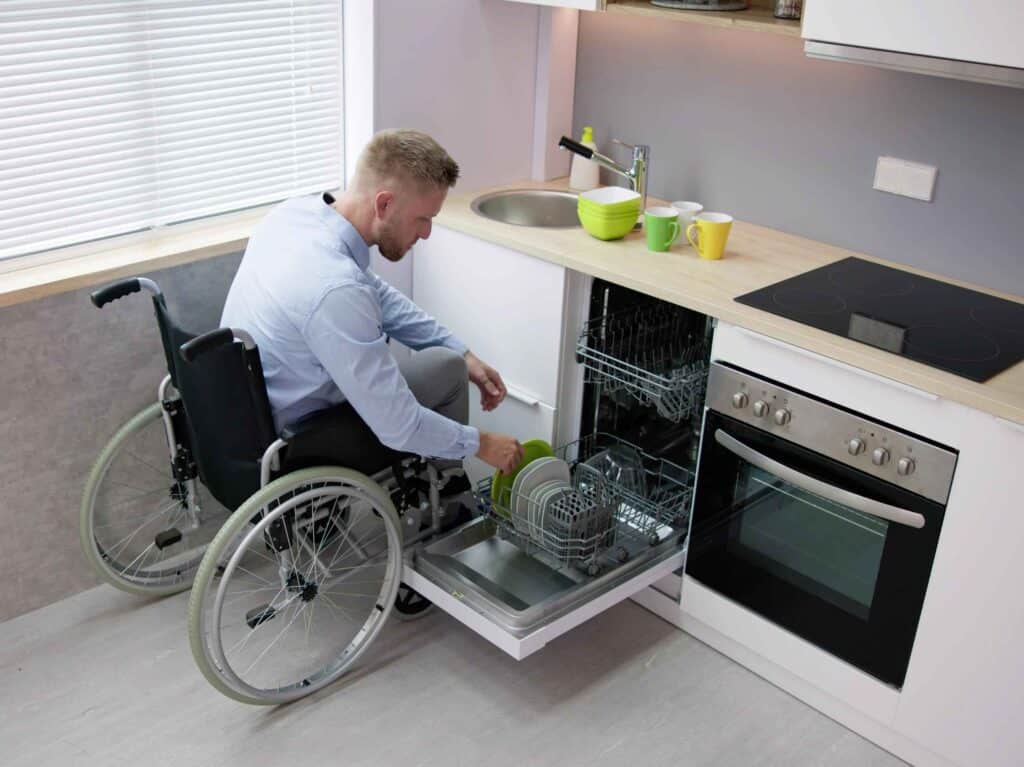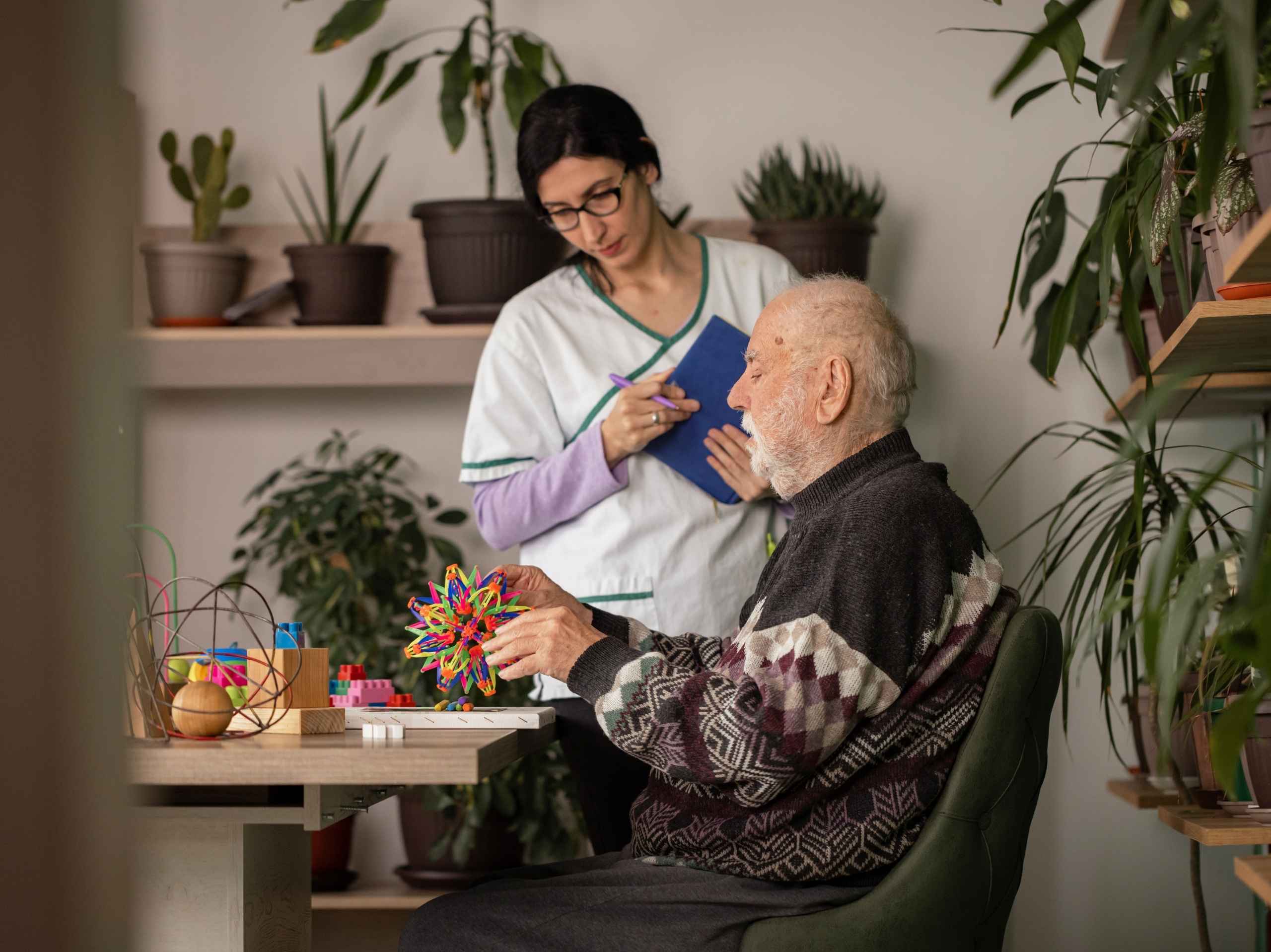Supported Independent Living (SIL) is more than just a service—it’s about helping people with disability live as independently and joyfully as possible, in a space they can truly call home. For many NDIS participants, especially those with high support needs, SIL is a long-term solution, not a temporary arrangement. That’s why personalised SIL accommodation isn’t just a “nice to have”—it’s essential.
When SIL is tailored to an individual’s unique NDIS needs, from their living environment to the people around them, it builds confidence, comfort, and wellbeing. Whether your loved one lives with dementia, has mobility challenges, or simply needs extra help with daily tasks, customising the space and care around them makes a world of difference.
This guide is here to help families and NDIS coordinators navigate how to personalise SIL effectively, and to explain how Reaching Abilities takes a truly person-centred approach to supported living solutions.
What Is SIL and Who Is It For?
Supported Independent Living (SIL) is a funded NDIS support designed to help people with disability live independently—either in shared homes or individual settings—with the assistance of trained support workers. It typically includes help with daily living support tasks like:
- Personal care (e.g., showering, dressing)
- Meal preparation
- Medication management
- Household chores
- Overnight or 24/7 support where needed
SIL is ideal for individuals with higher support needs, such as those living with intellectual disabilities, acquired brain injuries, dementia, or physical conditions that limit mobility or communication.
It’s important to note that SIL differs from respite care and medium-term accommodation. Respite is short-term relief for carers, while medium-term housing is transitional—often used while waiting for long-term options. SIL, on the other hand, is designed for ongoing, stable living with the right blend of care and independence.
In Western Australia and beyond, Supported Independent Living (WA) programs like those at Reaching Abilities aim to provide truly person-centred care that evolves with each participant’s needs.
Why Personalisation Matters in SIL
One-size-fits-all doesn’t work when it comes to disability support. Everyone’s situation, preferences, and challenges are different—and that’s exactly why personalised SIL accommodation makes all the difference.
When a SIL arrangement is tailored around the individual, it creates a sense of control and comfort that can improve everything from mental wellbeing to daily functioning. Personalisation impacts key areas such as:
1. The Home Environment
From the location to the house layout and even housemate selection, the setting must align with what makes someone feel secure. For example, a participant with sensory sensitivity might benefit from a quieter home with minimal clutter. Someone with mobility issues needs wide hallways, ramps, and accessible bathrooms.
2. Support Worker Matching
Support workers aren’t just caregivers—they’re companions, and a great match makes a huge impact. Language, personality, gender preferences, and cultural understanding all matter. A participant might respond better to someone calm and patient, or someone upbeat and encouraging.
3. Daily Routines and Lifestyle Preferences
Does the participant like to wake up early? Do they enjoy structured activities or prefer spontaneity? From meal planning to music choices, hobbies to evening routines, these details help individuals feel truly at home.
4. Cultural and Emotional Needs
Faith-based practices, communication preferences, and social interaction styles should be respected. For example, allowing prayer time, cooking traditional meals, or celebrating cultural events can dramatically improve emotional wellbeing.
Real-Life Example:
One of our participants living with dementia showed noticeable improvements in mood and orientation after being matched with consistent, familiar support staff who gently reinforced routines like morning tea, puzzles, and light walks. The continuity and predictability gave her comfort, helping to reduce anxiety and confusion.
Steps to Personalise SIL for Your Loved One
Making SIL truly tailored to individual needs involves collaboration, open communication, and detailed planning. Here’s how to get started:
1. Begin with a Holistic Needs Assessment
Work with the participant, their family, support coordinator, and allied health professionals to identify both physical and emotional needs. This includes medical, behavioural, and social preferences.
2. Involve the Right People Early
Involve a trusted SIL provider like Reaching Abilities as early as possible. Collaboration with your NDIS support coordinator helps bridge planning and practical setup.
3. Create an Individual Support Plan
This personalised plan outlines the participant’s goals, needs, preferred routines, and supports required. It becomes the foundation for all SIL arrangements, including carer shifts, activities, and home modifications.
4. Choose the Right Accommodation Style
Whether it’s a shared home or private apartment, select a setting that aligns with the participant’s independence level, social comfort, and access to the community.
5. Consider Housemate Compatibility
In shared SIL settings, housemate selection is crucial. Personality clashes or differing routines can lead to stress. It’s ideal to find housemates with similar interests and communication styles.
6. Discuss Preferences in Daily Life
Ask questions like:
- What meals do they enjoy?
- Do they need quiet time?
- Are pets important to them?
- What hobbies do they want to pursue?
These answers help shape daily routines that feel natural—not forced.
✅ Checklist – Personalising SIL Step-by-Step
- Conduct full needs assessment
- Choose a SIL provider experienced in customised NDIS housing
- Develop an individualised support plan
- Involve participant in all decision-making
- Identify physical/environmental needs
- Match with preferred carers
- Incorporate social, cultural, and lifestyle preferences
- Review and adapt the plan regularly

What Sets Reaching Abilities Apart
At Reaching Abilities, we believe SIL is about more than just meeting basic needs—it’s about creating a home with heart. Here’s what makes us different:
1. Genuine, Family-Like Care
We treat each participant as part of our extended family. Every person is seen, heard, and valued—not just for their NDIS plan, but for who they are.
2. Beyond-the-Plan Support
If someone’s feeling unwell, lonely, or simply needs extra attention, we step in—even when it’s outside the official scope. We believe care is about going the extra mile, not ticking boxes.
3. Specialised Training in Dementia and Complex Needs
All staff are trained in SIL for dementia participants, behavioural support, and trauma-informed care. We know that complex needs require thoughtful, responsive support.
4. Industry Expertise You Can Trust
Our founder brings 8+ years of hands-on experience across multiple NDIS domains—from care work and coordination to operations. That depth of understanding flows into every service we deliver.
5. Real Relationships
Whether it’s a regular wellbeing check-in, a favourite snack left on the bench, or remembering how someone likes their tea—these small acts create trust and joy.
Tips for Coordinators and Families When Choosing an SIL Provider
Choosing the right SIL provider can be overwhelming, especially when you’re trying to balance care quality, compatibility, and NDIS requirements. Here are some essential tips to help guide your decision:
- Ask about flexibility: Can the service adapt as the participant’s physical or emotional needs change over time?
- Meet the team first: Are support workers warm, approachable, and aligned with your loved one’s personality, culture, or communication style?
- Check beyond-the-plan supports: Will they assist with extra touches like attending appointments, emotional check-ins, or helping with community involvement?
- How is care reviewed?: Look for providers who conduct regular reviews and involve families or coordinators in goal tracking and adjustments.
- Look for transparency: A quality provider is open about their processes, team structure, and service expectations—and invites your questions.
- Ask about housemate matching: If shared housing is involved, ensure the provider considers compatibility and social harmony during placements.
- Understand their values: Do they prioritise person-centred care and long-term wellbeing, or just plan delivery?
Taking time to assess these aspects ensures your loved one receives the NDIS accommodation support they truly deserve.
More Than a Home. A Place to Belong.
Personalised SIL accommodation can be the difference between just coping and truly thriving. When SIL is tailored to someone’s unique NDIS needs, it brings dignity, independence, and happiness into everyday living. At Reaching Abilities, we believe that quality of life comes from connection, compassion, and truly understanding each individual.
At Reaching Abilities, we treat your loved one like our own. Get in touch today to explore SIL options tailored to their unique needs.

Ozer Tanlasi – Founder and Director of Reaching Abilities
Ozer Tanlasi is the Founder and Director of Reaching Abilities, an organisation dedicated to providing compassionate and empowering support to individuals with disabilities. With a background in allied health and a deep commitment to inclusive care, Ozer established Reaching Abilities to create a welcoming space where individuals can thrive, gain independence, and achieve their personal goals. Her approach is centred around understanding each individual’s unique needs and strengths, ensuring they receive tailored services that make a positive impact on their lives. Under Ozer’s leadership, Reaching Abilities has become known for its compassionate, client-focused approach, supporting individuals and families in building meaningful connections and reaching new potentials.






